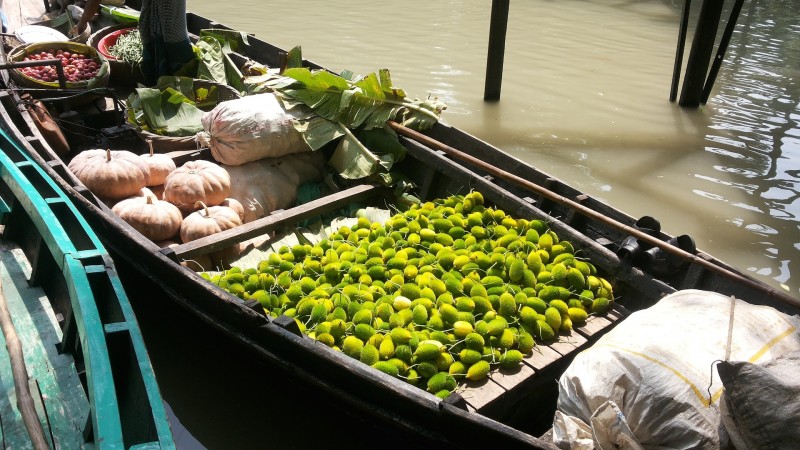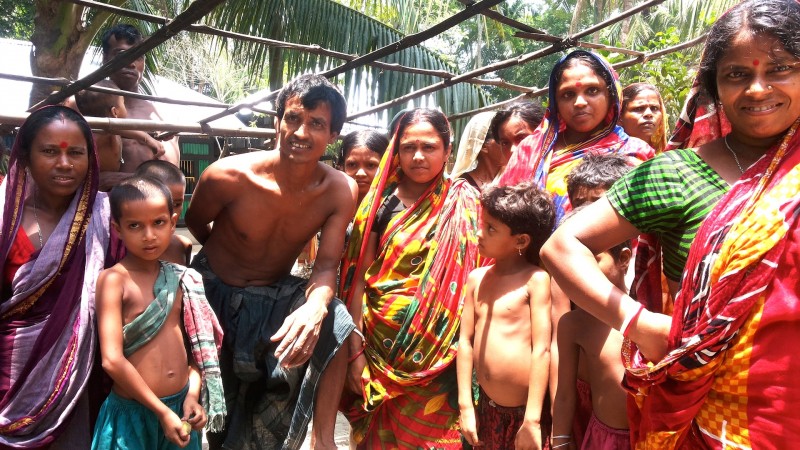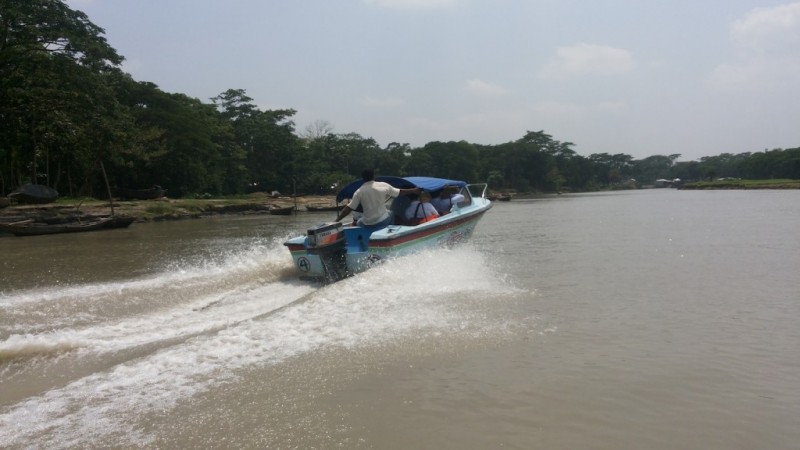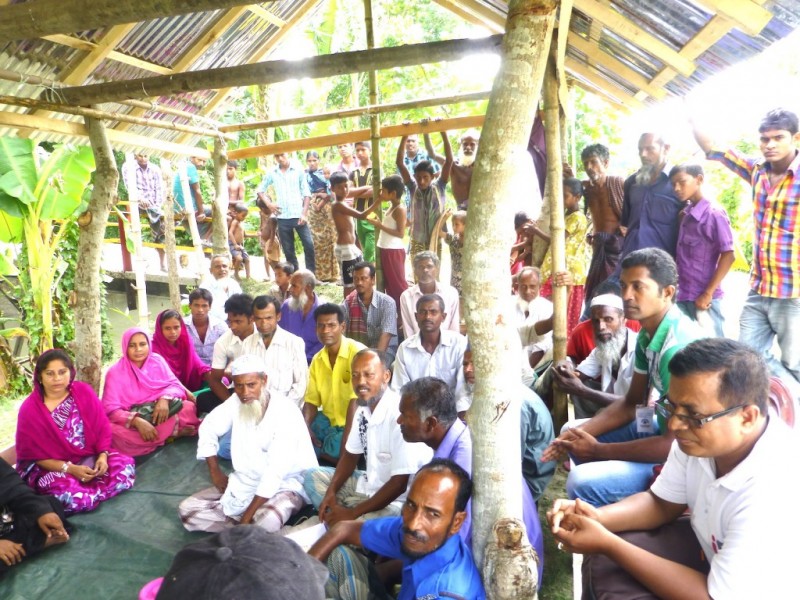REPORT May 22, 2014
Mechanization and Market Development trigger agricultural revolution in Bangladesh: Report from Barisal vol. 2

About 28% of the villagers of Bangladesh are poor, and most of them lead a humble life. One of the causes is that the products in the remote areas don’t sell at a high price. There are mainly two reasons behind this – lack of market information and low production volume per household. Farmers have no information which product is good for sale, and brokers are not willing to buy the low volume products.
We visited Harta and Karshar villages to observe the example that farmers can multiply production by establishing a collection point, forming agricultural groups, and negotiating brokers on their own.

Multiplied sales by access to information and products accumulation
We visited Harta village first. It is located in a remote area, about 50 minutes drive from Barisal city center and 20 minutes sailing from the point, where wholesalers do not come and information is unreachable. They cannot acquire market information such as demand in the urban cities and the products that sell well. Of course, high quality farm products such as seeds required for production, farm equipment, fertilizer, and pesticides were not available because sellers do not come all the way to the remote areas.
The farmers have worked on establishing a distribution revolution with the help of a local NGO. The revolution began with the formation of a group. They divided farmers into 30 groups in categories of each product, and each group sent the collected products to the market. They were then able to produce a high volume of goods and negotiate well with brokers. As a result, the sales successfully increased.
The various roles are distributed within the group – such as obtaining market information from broker, negotiating the package purchasing of high quality seeds and fertilizer with private company. By forming groups and allocating the specific roles, they were successful in creating a virtuous cycle through which farmers could get information about marketable high yield products, purchase high quality seeds and fertilizer at a reasonable price, and sell high-volume products at a high price. As a result, the sales multiplied in three years.
How to bring business in remote island?
Our next destination, Karshar village, was even more remote. It is in inland area 40 minutes ride by motorboat from the center of Barisal. On the way to the location, we saw children swimming and a herd of water buffaloes. We were lucky to see the actual daily village life in Bangladesh.

The system developed in this village is different from Harta village in that it focuses on creating an incentive for buyers in the urban areas to come to Karshar village to buy the products. The strategy is very simple. Initially, they decided to produce only tomatoes, and they considered strategies to attract buyers to buy tomatoes and what should be done to achieve the goal.
First, they worked on producing the necessary volume that buyers would like to buy. Farmers developed a system supplying a high amount of tomato stably and constantly by allocating the roles of producing tomatoes systematically. Then, they set a collection point near the river so that the products could be bought easily and sent back to market.
There used to be high transportation cost and, it took 1 day for farmers to bring the products to the market and sell and come back to the area. However, after the introduction of the collection point and setting a fixed time for dealing, the amount of work reduced by a high margin. They also found a strategy to utilize the fertile land available and produce high quality products in large volumes. Now, the access to market is gradually developing.

Four years since the inception of project, today they are producing not only tomatoes but also other farm and marine products. They are currently planning to produce corn usable for feed, and sell the product for livestock farmers in northern Bangladesh. The southern village which used to be isolated even from its neighbor market, grew up to now be able to make production plan targeting northern Bangladesh.
A strong value chain composed of all the related stakeholders was developed so that the high quality crops produced in Harta Village could be delivered to the local market. iDE conducts a research on all the stakeholders (incentive and motivation to achieve a win-win situation).
Now, more than 500 crops produced in Harta village can be delivered to the local market. iDE established the system through which FBGs could get high quality seeds and fertilizer from the private sectors. Sales increased, almost double in figure, further improving healthy and productive lives.
